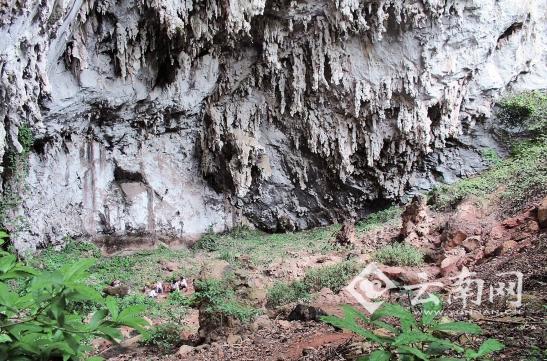Oldest Hoabinhian site discovered in SW China
Updated: 2016-01-01 15:03
(Xinhua)
|
||||||||
 |
|
Xiaodong Rockshelter [Photo/yunnan.cn] |
The oldest Hoabinhian culture, an important technological adaptation by hunter-gatherers to the humid tropical and subtropical environments of southeast Asia some 43,500 years ago, was identified in Southwest China's Yunnan province.
Discovered at Xiaodong Rockshelter, it is the first-ever Hoabinhian site to be found in China, according to a research team at the Yunnan Institute of Cultural Relics and Archaeology.
The Hoabinhian culture was first discovered in the 1920s in the northern Vietnam's Hoa Binh province by French scholar M. Colani, who defined it in 1932 at the First Conference for Prehistoric Archaeologists in the Far East.
The Hoabinhian technocomplex is characterized by large and elongated adze-like unifacial cobble tools, which are thought to be used for woodworking in forested habitats, including the hilly limestone landscapes where the Xiaodong Rockshelter is located.
Leading researcher Ji Xueping said most known Hoabinhian sites have been dated to between 25,000 to 5,000 years ago, with the oldest about 29,000 years from today.
As a technological adaptation practiced by the latest hunter-gatherers to cope with the humid environments of southeast Asia, Hoabinhian sites provide significant clues for understanding the surviving strategies of hominids, and the transition from nomadic populations to more settled agricultural communities, Ji said.
- Top planner targets 40% cut in PM2.5 for Beijing-Tianjin-Hebei cluster
- Yearender: Predictions for 2016 through 20 questions
- Asia's largest underground railway station opens in Shenzhen
- Shanghai bans drug-using actors, drivers
- Clamping down to clean up the air
- Yearender: Ten most talked-about newsmakers in 2015
- Over 1 million refugees have fled to Europe by sea in 2015: UN
- Turbulence injures multiple Air Canada passengers, diverts flight
- NASA releases stunning images of our planet from space station
- US-led air strikes kill IS leaders linked to Paris attacks
- DPRK senior party official Kim Yang Gon killed in car accident
- Former Israeli PM Olmert's jail term cut, cleared of main charge

 Yearender: China's proposals on world's biggest issues
Yearender: China's proposals on world's biggest issues
 NASA reveals entire alphabet but F in satellite images
NASA reveals entire alphabet but F in satellite images
 Yearender: Five major sporting rivalries during 2015
Yearender: Five major sporting rivalries during 2015
 China counts down to the New Year
China counts down to the New Year
 Asia's largest underground railway station opens in Shenzhen
Asia's largest underground railway station opens in Shenzhen
 Yearender: Predictions for 2016 through 20 questions
Yearender: Predictions for 2016 through 20 questions
 World's first high-speed train line circling an island opens in Hainan
World's first high-speed train line circling an island opens in Hainan
 'Internet Plus' changes people's lifestyles in China
'Internet Plus' changes people's lifestyles in China
Most Viewed
Editor's Picks

|

|

|

|

|

|
Today's Top News
Shooting rampage at US social services agency leaves 14 dead
Chinese bargain hunters are changing the retail game
Chinese president arrives in Turkey for G20 summit
Islamic State claims responsibility for Paris attacks
Obama, Netanyahu at White House seek to mend US-Israel ties
China, not Canada, is top US trade partner
Tu first Chinese to win Nobel Prize in Medicine
Huntsman says Sino-US relationship needs common goals
US Weekly

|

|







